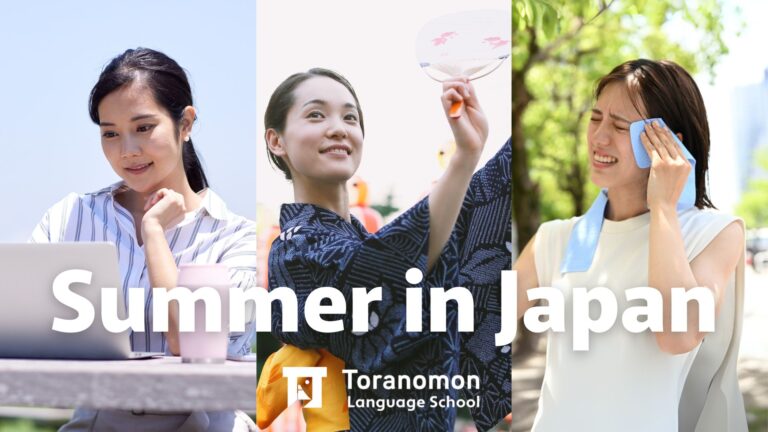If this is your first summer working in Japan, you might find that the season brings more than just heat, it also introduces a unique set of customs and business norms that might be unfamiliar at first. Understanding these seasonal shifts can help you blend into the workplace more smoothly and avoid misunderstandings. Here’s what to expect and how to prepare when navigating Japanese work culture during the summer.

The “Cool Biz” Culture
One of the first things you’ll notice when temperatures rise is that business attire starts to change. Japan’s government encourages companies to adopt a “Cool Biz” dress code between May and October. This means you’ll likely see coworkers ditching jackets and ties in favor of lighter, short-sleeved shirts and breathable fabrics. For foreign professionals used to strict Western dress codes, this can feel surprisingly casual, but don’t assume that anything goes. While Cool Biz allows more comfort, appearances should still be clean and conservative. Pay attention to what your team is wearing and follow their lead.

Obon Season and Vacation Gaps
August in Japan often brings a noticeable slowdown in the office due to Obon, a traditional holiday where many people return to their hometowns to honor ancestors. Although it’s not a national holiday for all companies, many businesses offer time off during this period, or expect lighter activity as partners, vendors, and clients go on break. If you’re scheduling meetings or submitting requests around mid-August, anticipate delays and plan accordingly. It’s also a great time to practice cultural sensitivity by learning how to say simple seasonal greetings or showing awareness of others’ travel plans.
Seasonal Small Talk and Cultural Connection
Summer is a rich time for relationship-building through seasonal traditions. You might be invited to a nomikai (drinking party), a fireworks festival, or simply bond with coworkers over summer heat complaints. Small talk often includes the weather, summer foods (like kakigori shaved ice), or traditional events. Knowing a few phrases or cultural references can help you engage more naturally. Even a simple comment like 「毎日暑いですね」(“It’s hot every day, isn’t it?”) can show cultural awareness and help you connect.

Surviving the Heat and Humidity (Office Edition)
Japanese summers can be intense, with high humidity and temperatures often exceeding 35°C (95°F). Offices are usually air-conditioned, but commuting in this heat is a challenge, especially if you’re wearing business attire. Keep a small towel or handkerchief with you (common in Japan), invest in breathable layers, and carry deodorant or body wipes. These small steps go a long way in maintaining a polished, professional presence even when the weather is working against you.
Build a Foundation Before You Arrive
If you’re still preparing for your move to Japan or want to feel more confident stepping into the workplace, our Survival Kit course can help you build that foundation. Designed for beginners, it focuses on essential grammar, vocabulary, and real-world speaking skills you’ll actually use, whether you’re navigating the office, shopping for lunch, or attending your first company event. The best part? You don’t need to be in Japan to get started, the course is offered remotely, so you can begin preparing now and hit the ground running when you arrive. Start here to build your Japanese learning journey!

